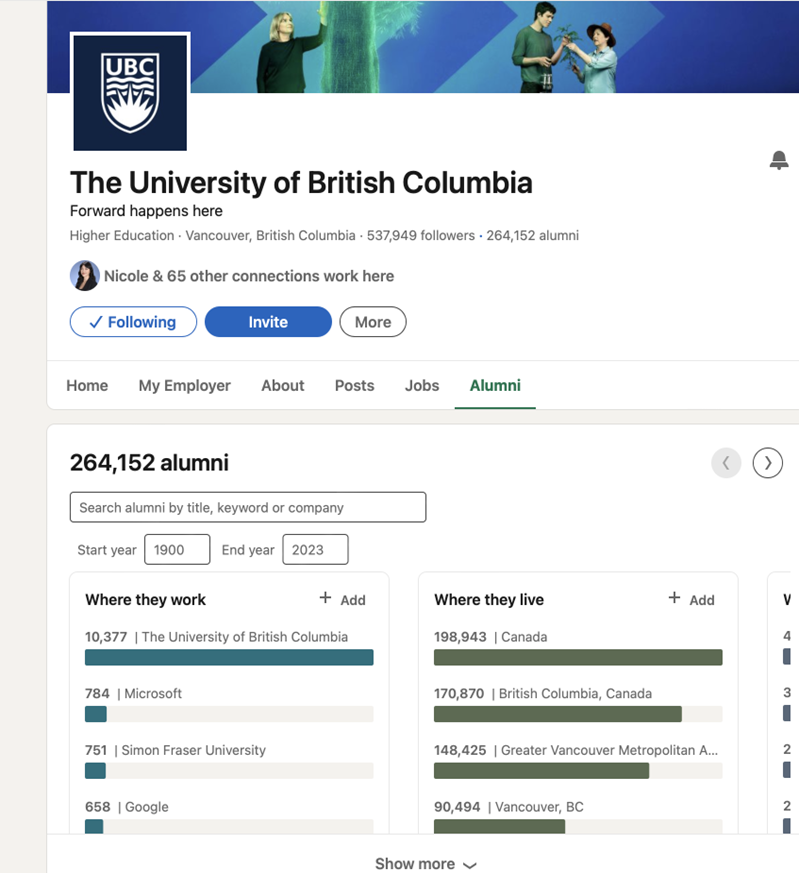When I first landed in Canada in 2017, coming straight from high school in India, I had limited work experience, and many employers preferred permanent residents and citizens. This was very demotivating and made me feel at a disadvantage from my peers.
I decided to visit the Career Centre at the University of British Columbia. They helped me recognize my unique strengths and shared invaluable tips which became my ammunition in Vancouver’s competitive job market. Being an international student is a symbol of determination and grit. We can face risks and challenges with positivity, and that’s invaluable to workplaces. While our start might be slower than others, slow and steady can still win the race, especially if we proactively seek support.
In Canada, one of the major skills for securing a position is networking. Every university has a LinkedIn page with an “alumni” section. This section allows you to filter alumni based on various categories like their major, the industry they are in, and the country they’re living in.

I was able to look at their profiles, the kind of opportunities they had pursued that allowed them to get into the jobs I wanted, as well as grad school.
Finally, from feeling lost and overwhelmed, I had a direction.
Upon contacting them, they were more than happy to answer my queries and provide me with tips and contacts. Acting as my reference, they helped me secure positions of my interest. They reminded me of the importance of starting with the basics, such as customer service opportunities. Once you get your foot in the door, it helps you upskill, opening access to higher opportunities.
Getting your dream job is like climbing a ladder; there’s no helicopter ride to the top. Instead of comparing our journeys with others, we should find inspiration in them.
At the end of the day, BC has opportunities for everyone willing to make it their home. The key is to be willing to lay the bricks.